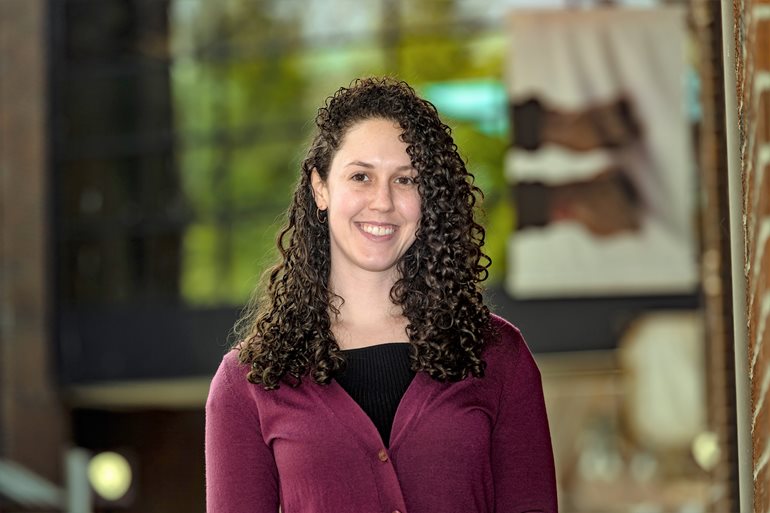

By Douglas Esser
Abby Jerger was a Biology major who fell in love with mathematics as a way to use quantitative skills to solve biological problems. So, she changed her major to Mathematics and continued with Biology as a minor. She’s planning to apply for jobs in biostatistics or computational biology.
Casey Cummins is a pre-med student committed to becoming a doctor. He’s setting the foundation to become a physician by pursuing a major in Health Studies and minors in Chemistry and Biology. Pre-med students take a lot of biology classes, he said, and having a Biology minor gives him another “look what I did” representation on his resume.
Jerger and Cummins are among 14 students currently enrolled in the University of Washington Bothell’s Biology minor, which launched in fall 2018.
Making the most of it all
Like Jerger and Cummins, all of the Biology minor students are go-getters, said Chris Shaeffer, an academic adviser in the School of Science, Technology, Engineering & Mathematics. They are leveraging their majors and adding skills that give them more options and opportunities.
Biology already is a popular major at UW Bothell. The number of Biology degrees awarded has grown from two in 2011 to 133 in 2018. Currently there are more than 240 students majoring in Biology. The minor offers another choice for students in the Biological Sciences Division, which already had two minors: Neuroscience and Consciousness.
The new Biology minor displays additional skill sets to graduate schools or potential employers, Shaeffer said. “A minor in biology is showing that you know how complex systems work, how to organize that information and communicate it effectively.”
The minor is an especially good fit for Chemistry and Biochemistry majors because of the overlap in prerequisites, Shaeffer said. Many students can add the minor with a just quarter or two of additional classes.
“Minors give students more flexibility with how they’re creating their experience here,“ he said.
The university was able to add the Biology minor without adding courses or faculty, noted Professor Marc Servetnick, chair of the UW Bothell Division of Biological Science. “We have a really robust biology curriculum in place.”
Beyond STEM majors, he said, the minor also can be an advantage for students in majors, such as Business or Education, in other schools at UW Bothell.
Having more to show
A Biology major was the plan when Jerger transferred from Seattle Central College. After shifting her major to Mathematics, she was glad to hear from her adviser, Shaeffer, that Biology would still be prominent on her transcript.
“It’s a powerful combination, and in the upcoming data world it’s more and more necessary,” said Jerger.
Aiming to graduate in 2020, Jerger also works two jobs on campus. She’s a student outreach coordinator in Career Services helping clubs with career-related events, and she’s a cardio-kickboxing instructor at the Activities & Recreation Center.
When Cummins transferred from Everett Community College and decided on a pre-med path, he didn’t want to specialize.
“That’s why Chemistry, Biology and Health Studies — I get to do a little bit of everything,“ he said. “Because the majors overlap so well I was able to study what I wanted and use it for multiple applications.”
Expecting to take a lot of biology courses anyway, the minor gave him more guidelines and focus. “It made me more excited to dive into biology — more than just as pre-requisite for pre-med,” said Cummins, who plans to graduate in the winter of 2020.
Cummins has worked as a teaching assistant in chemistry and is working as a teaching assistant spring quarter in biology. Cummins said he also found the faculty and staff of the various programs worked together to support his aspiration.
“There’s an interconnected web between the different branches of degrees at this campus, and they do a good job of supporting a student on their individual goals,” Cummins said.



